The broken windows theory of policing conceptualizes poor people as things to be removed and not people who are struggling to survive.
On July 31, members of the Western Regional Advocacy Project (WRAP) organized a march to the Union Square Business Improvement District in San Francisco to protest the way businesses and local officials use a combination of private security forces and city police to harass and banish homeless people.
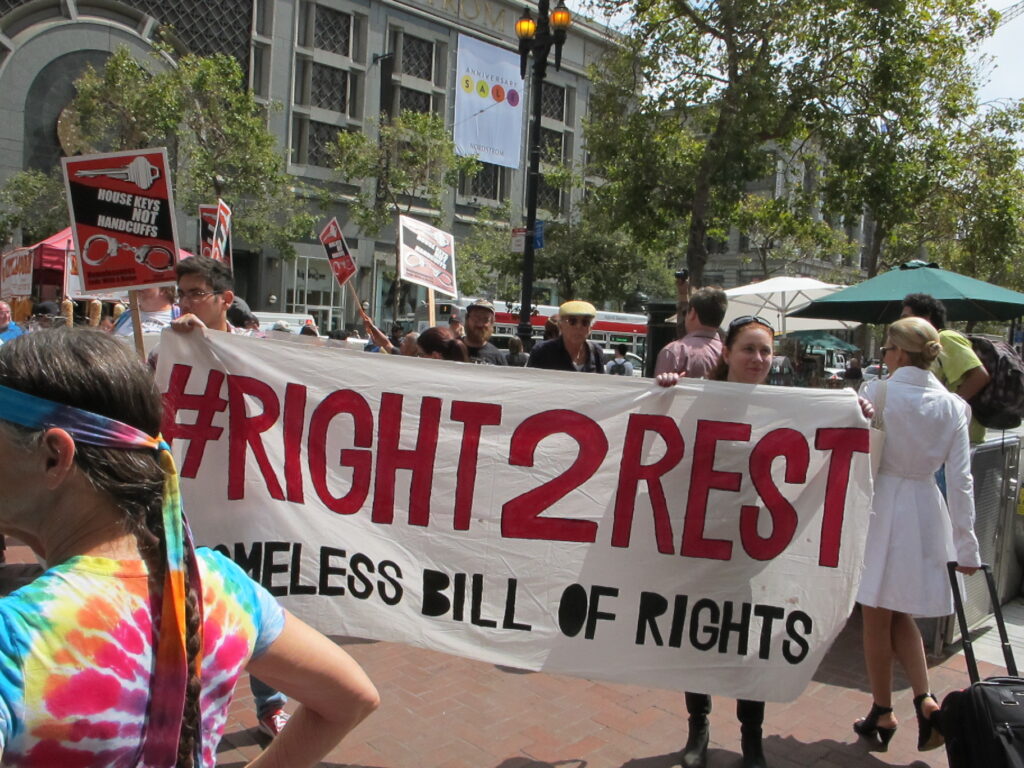
San Francisco.
It was another essential step in building a movement towards the elimination of poverty and homelessness and advancing the fight for the Right to Rest. Advocates from three states joined the march as part of a national campaign to build a multi-state Homeless Bill of Rights and demand the right for all people to engage in the necessary activities of sitting, lying, eating, and sharing food without being criminalized. WRAP is coordinating this fight in Colorado, Oregon and California. All three states are considering legislation for a Right To Rest.
The march kicked off with a boisterous rally at Powell Street BART Station at the cable car turnaround, a San Francisco tourist destination. More than 75 protesters waved colorful placards demanding “House Keys Not Handcuffs” as they weaved their way through the Friday afternoon commuters, shoppers and tourists.
DISCRIMINATORY POLICING
“We are back to the days of Jim Crow laws and Anti-Okie laws,” said Lisa Marie Alatorre of the San Francisco Coalition on Homelessness. “The BIDs are promoting discriminatory policing practices to simply remove people deemed unwanted from certain parts of town. We are marching today to tell the BIDs that we are here to stay and we will have our Right to Rest.”
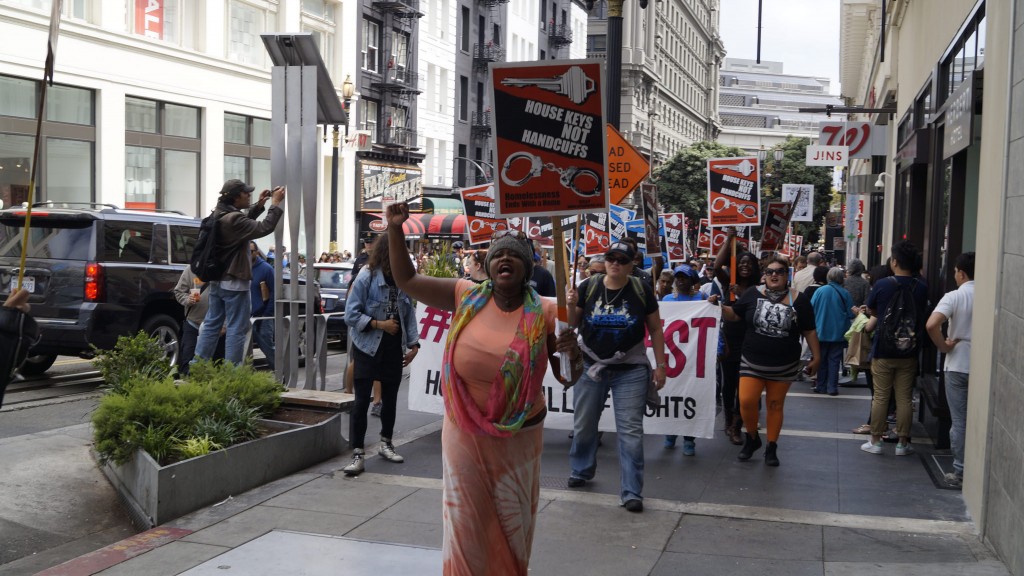
The marchers moved up Powell Street to the Union Square Business Improvement District office in the heart of San Francisco’s premier shopping district. Huge cardboard cutouts of jails appeared and protesters spilled off the sidewalk and into the street.
The crowd then moved into Union Square proper where WRAP members addressed the problem of Business Improvement Districts (BIDs) in their communities. BIDs have been relentlessly policing poor and homeless people for simply existing in public space.
“We decided to create a Community Watch Team,” said General Dogon of the Los Angeles Community Action Network. “We went to the Law Library and studied, gathered together community residents ,and on the day of our launch we got a big bullhorn, went to the BID office and told them – Today is a new day, from this day on you will not be able to violate the civil and human rights of our community.”
A recent street outreach survey of 1,388 of homeless and poor people conducted by WRAP organizers shows that 76 percent of people on the streets who received a ticket from the police assumed that it was a result of their economic status. Also, 77 percent of people have seen private security guards harassing, policing and displacing people from the public sidewalk. At the same time, only 26 percent of people surveyed know of a safe and legal place to sleep.
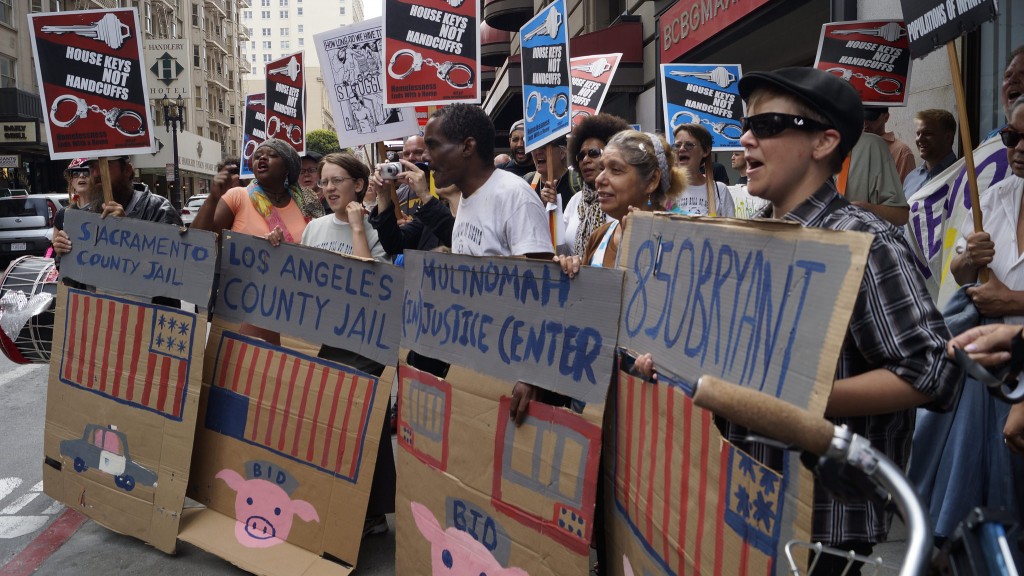
The vast majority of this harassment has been occurring at locations within Business Improvement District boundaries. Enforcing laws meant to target homeless people simply is adding more stress and struggle into people who are already struggling to even survive.
The Union Square BID, which gets 96 percent of its funding from raising property taxes in the district, spends over two million dollars on what it calls “Clean & Safe” expenses such as policing, security cameras and other surveillance technology. The main focus of the BID’s idea of safety involves citing, harassing, incarcerating and displacing poor and homeless people through the discriminatory practices of enforced sit/lie legislation.
As the demonstration came to a close, protesters called for a return to San Francisco to protest BIDs during the International Downtown Association Conference to be held in San Francisco from September 30th thru October 2nd.
LAWS THAT BANISH AND EXCLUDE
The United States has a long history of using discriminatory and violent laws to keep “certain” people out of public spaces and out of public consciousness.
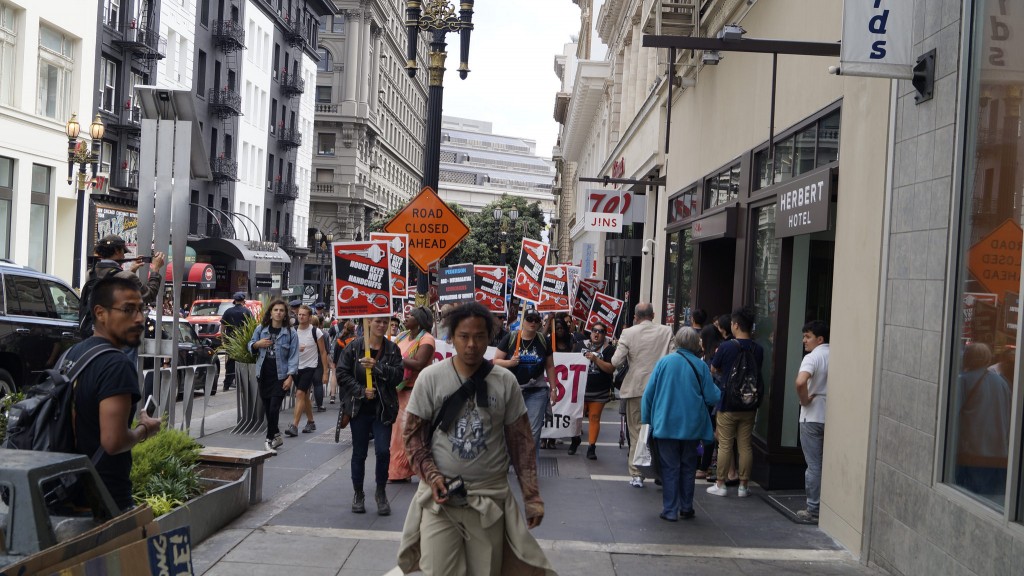
Jim Crow laws segregated the South after the Civil War and Sundown Towns forced people to leave town before the sun set. The anti-Okie law of the 1930s in California forbade poor Dustbowl immi- grants from entering the state. Ugly Laws swept the country and criminalized people with disabilities for being seen in public.
Today, such laws mostly target home- less people and are commonly called “quality of life” laws or “nuisance crimes.” They criminalize sleeping, standing, sitting, and even food-sharing. Just like the laws from our past, they deny people their right to exist in local communities.
Today’s “quality of life” laws and ordinances have their roots in the broken- windows theory. This theory holds that one poor person in a neighborhood is like a first unrepaired broken window. If the “window” is not immediately fixed or removed, it is a signal that no one cares, that disorder will flourish, and the community will unravel. This theory conceptualizes poor people as “things” to be removed, and not people who are struggling to survive.
BIDS AND POLITICAL REPRESSION
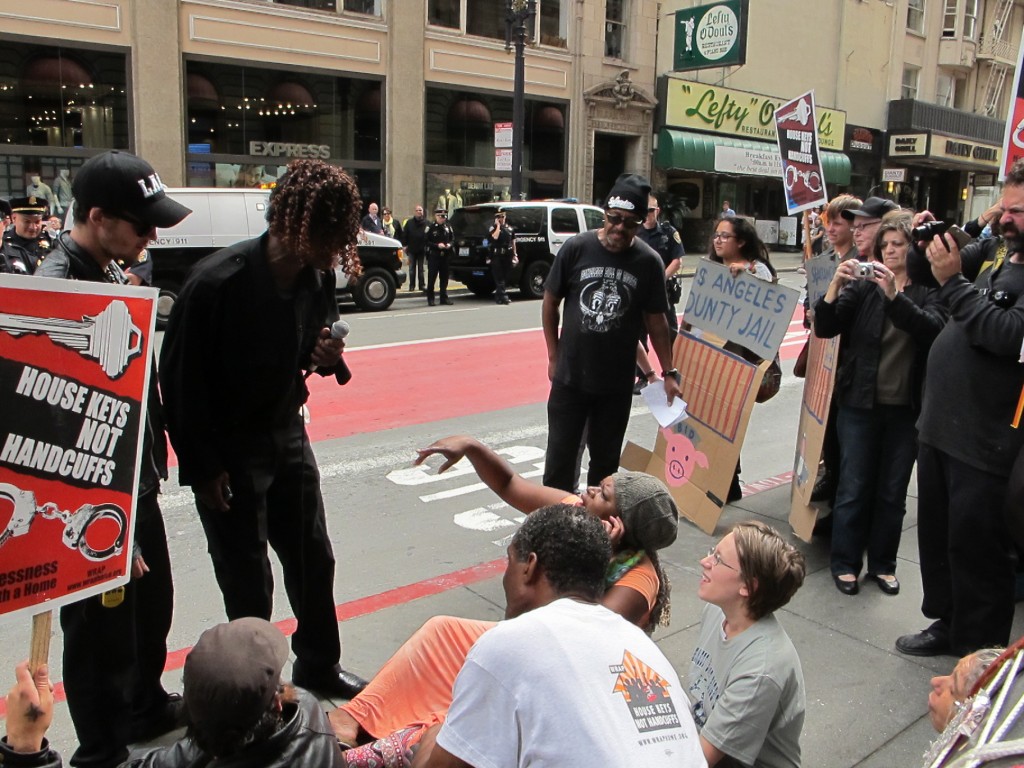
Nowadays, we have Business Improvement Districts (BIDs) collaborating with police enforcement to keep business neighborhoods flourishing by removing poor people from visible spaces.
BIDs are made up of a group of property and business owners deciding to assess or tax themselves in order to invest in a more “safe and attractive” consumer environment. There are well over 1,000 of these special districts throughout the United States and Canada. Their main function is to drive homeless people away from the BID by hassling them, enforcing the sit-lie law and other discriminatory tactics, and notifying law enforcement when quality of life offenses are being committed, thus criminalizing homeless and poor people’s existence.
We are right back to Jim Crow Laws, Sundown Towns, Ugly Laws and Anti- Okie Laws. We have gone from the days where people could be told “you can’t sit at this lunch counter” to being told “you can’t sit on this sidewalk,” from “you’re on the wrong side of the tracks” to “it is illegal to hang out” on this street or corner.
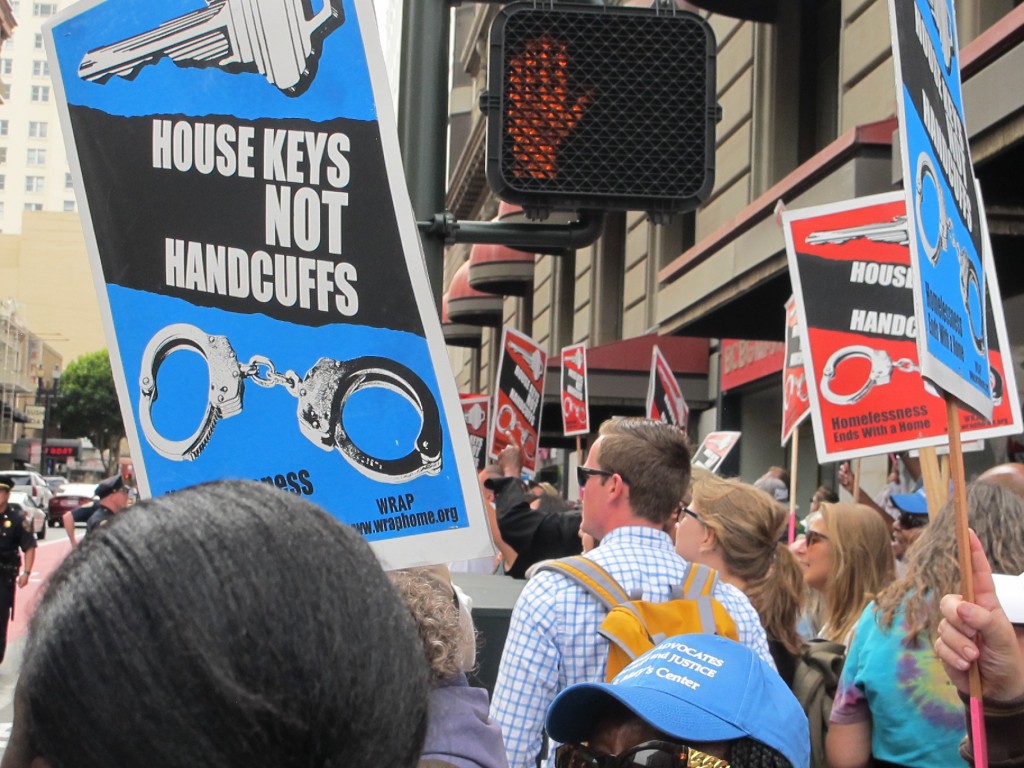
We will only win this struggle for social justice if we use our collective strengths, organizing, outreach, research, public education, artwork, and direct actions. WRAP and our allies are continuing to expand our network of organizations and cities and we will ultimately bring down the whole oppressive system of policing poverty and treating poor people as “broken windows” needing to be discarded and replaced. Our liberation is dependent on your liberation.
This originally appeared in: Street Spirit
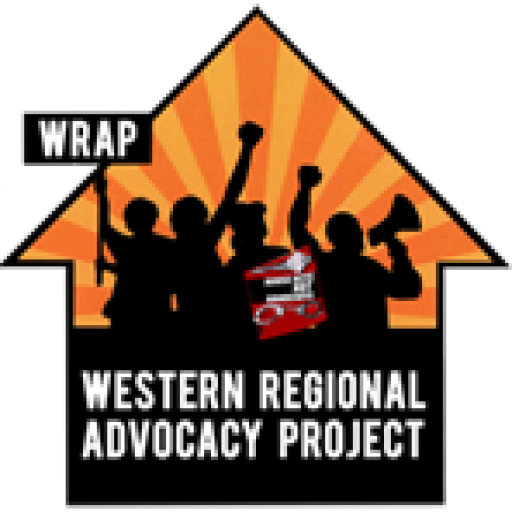


Leave a Reply
You must be logged in to post a comment.